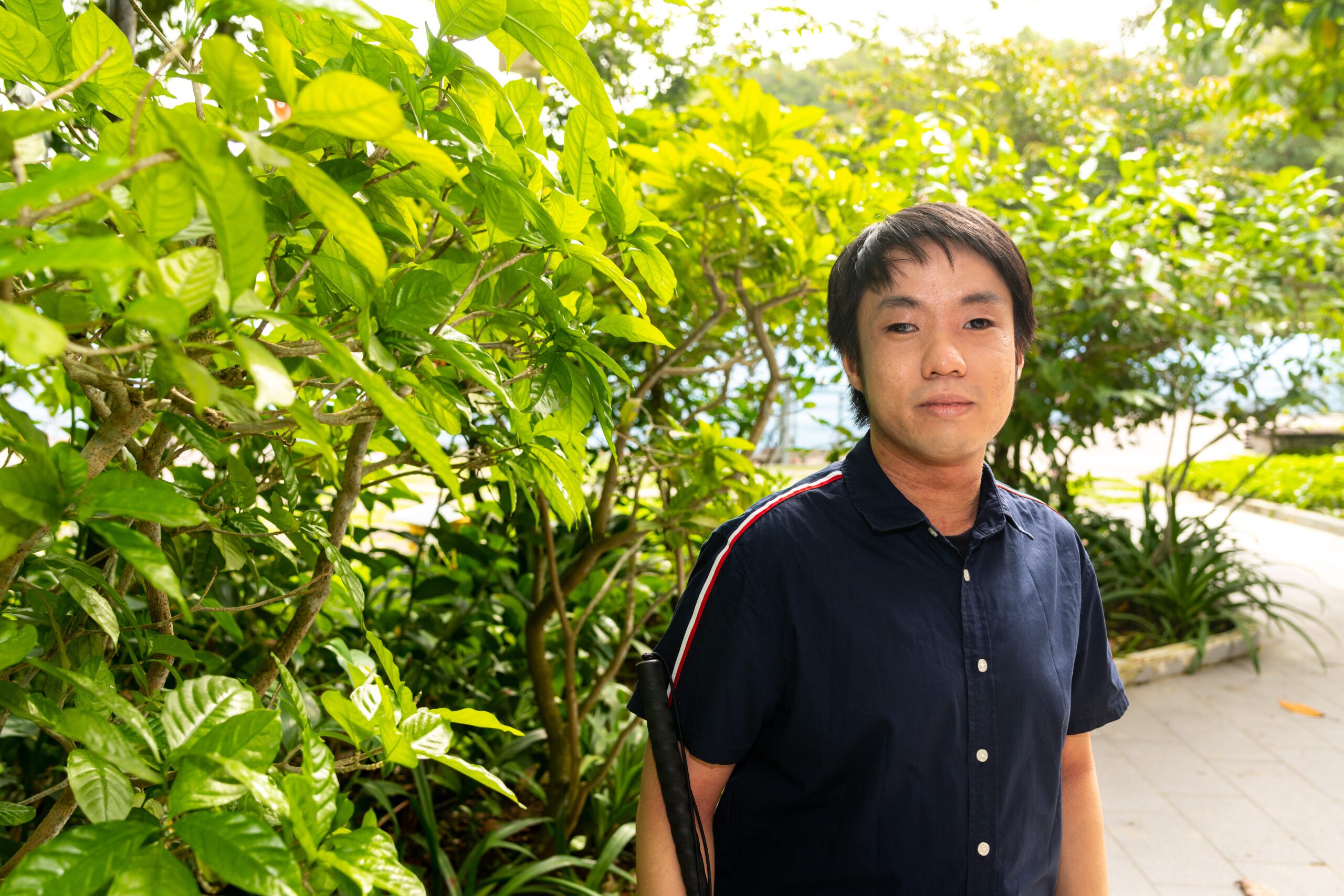Fendi, what were you like as a kid?
My affinity with plants developed at a young age. Whenever I was riding a bus or in a van, I would look at the trees and observe how the leaves moved. As a kid, I was also drawn to the outdoors, thanks to my parents’ influence. Doodling was another hobby of mine: I would draw things that I imagined such as creatures and mermaids. I’ve always had a strong connection with animals too. In fact, all my current home cats are rescued.
Did you enjoy studying?
Science at the primary school level was interesting to me — the early foundational topics were on photosynthesis, animals, trees and plants. I’d always struggled with mathematics. At the secondary school level, physics and chemistry were very much based on mathematics, so I lost interest. I also have colour vision deficiency, so I couldn’t differentiate between the chemicals and the colour-coded elements in the periodic table. Literature was my main humanities subject. I really enjoyed it: getting to decipher the themes of a book and to discuss about the people in the story, from their motivations to their characters. There was an openness to it: there was no right or wrong as long as I could make sense of what I wrote. I loved that creative freedom.
I was in the last class of the express stream, the ‘delinquent’ class that I think the teachers had given up on, because we were students who didn’t excel in examinations or had big personalities or behavioural issues. I’m not sure if it was an understanding issue or if I lacked in the foundation, but I eventually failed O-Level mathematics. Only a few diploma courses, such as early childhood, were available to me. The syllabuses didn’t interest me. I decided to be practical and to take the Institute of Technical Education (ITE) route. I thought I could get a Higher National ITE Certificate (Nitec) in business studies and then enrol in a polytechnic thereafter.
What was your frame of mind back then?
I felt ashamed that I was a student from the express stream who wound up at ITE. My elder sister went to polytechnic, so that was the linear route to follow. There was no pressure from my parents — they knew of my struggles with mathematics. But yea, I did harbour that internal shame for a while. Back in the mid-2000s, the notion was that only students who didn’t study hard would end up in ITE. At the beginning of the school term, even a few of my ITE classmates would jest — ‘What are you doing here? You did O Levels and you’re here.’ I was an express-stream student who ended up in ITE, so to them, my failure seemed greater than their own — how could someone screw up so much? But that feeling of shame only persisted for the first two months or so. After that initial period of adjustment, I forgot about the shame, moved on and my inspiration to study hard was rekindled.
What would you say to youths who find themselves at the same crossroads as you — having to choose between the ITE route and taking up a diploma in a field that doesn’t interest them, simply because they don’t want to be labelled a failure?
There’s a lot hanging on that three-year polytechnic route: there’s money involved. Pursuing something you don’t have an interest in is exhausting. If you decide to drop out halfway through the course, you’d have nothing to show for. If the ITE path is the best or only option for you, take it. Don’t feel as if you’ll be left out or left behind. The two years of foundational learning at ITE will expose you to specific skills. During this time, pick up new hobbies. See what sticks. You will learn a lot about yourself.
Don’t think of the ITE path as a longer route. Time wise, yes, it is an extra two years, but should you progress to polytechnic later, you go in with one foot already in the door. You’re more prepared; you have an awareness of what’s going on. So, don’t feel pressured to get a diploma if you are not ready — if not you are just pursuing something aimlessly. By the time you turn seventeen, eighteen, you’ll have a fresh perspective. You may think, ‘I enjoy the hotel environment. Maybe I want to get a hotel management diploma.’ And that’s when you will become driven and that’s when you will excel, because when you’re passionate about something, you naturally will push yourself harder than everyone else.
The only downside for ITE graduates is the pay difference between theirs and diploma or degree holders’. But I think that’s fair — diploma or degree holders have spent more time studying. But you will be able to catch up. Should you want to get on the management track, you will then need to further your studies. Here’s the thing: if you become a valued person at your company, your bosses may want to invest in you and sponsor your studies.



